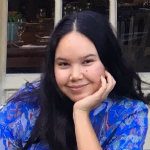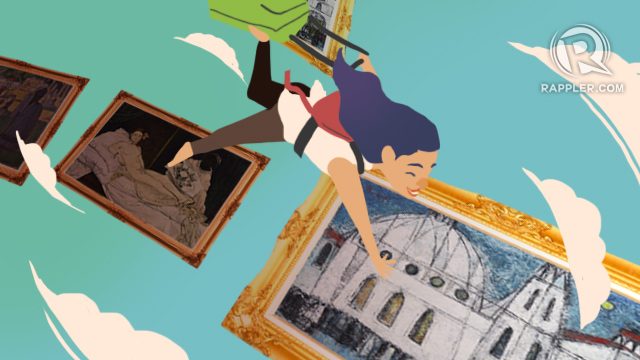SUMMARY
This is AI generated summarization, which may have errors. For context, always refer to the full article.

Philippine society is a highly diasporic one. Every Filipino knows someone who left home to work abroad. Many discussions on contemporary Filipino issues center around this phenomenon.
This essay, however, explores the opposite: moving “back” to the motherland if you’ve grown up abroad.
My parents met while my dad, a British journalist, was on assignment in Manila to cover the ousting of the late dictator Ferdinand Marcos. They got married in London later that year then finally settled in Paris, where I was born and raised. Growing up in France, I was constantly reminded I wasn’t white enough, never French enough, and always too Asian.
My mother encouraged me to connect to her family and culture, and I was lucky enough to visit the Philippines often. After graduating university in 2016, I got a job working for an NGO in Quezon City. I was ecstatic and nervous: this was something I had hoped for my whole life. The Philippines had become for me this imagined utopia, a fantasy on which I could project my past, present, and future. A land full of possibilities and potential happy endings. My Homeland.
Facing reality
I knew that reality would never live up to expectations, like meeting your favorite actor or singer. You realize they are just as flawed and complicated as everyone else. This country that I so ardently loved and cherished did not always seem to feel the same way about me. I still trouble figuring out my position as a member of the “re-aspora” (the diaspora that comes back). I’m not a balikbayan but I’m not an AFAM (A Foreigner Assigned to Manila). People often assume I know nothing about this country and its culture.
One person was genuinely shocked that I knew what adobo was, another explained to me pedantically what a jeep was. I’m praised for doing ordinary things like a local, but at the same time consistently reminded that I’m not actually Filipino. (READ: What does it mean to be Filipino?)
As I navigated this massive metropolis, childhood memories would rush back to me, giving me a false sense of security. I felt exposed and vulnerable, in ways I had never been before. The first time I went to the mall entirely on my own I felt so nervous. Warnings from my relatives would come back to me: would I be able to make my own way? What if someone followed me home or robbed me? What if I had to speak Tagalog? (READ: Being Filipino abroad: Facing stereotypes and racism)

Tagalog is the language of my ancestors. It’s in my blood, but I can’t speak it fluently because my parents spoke to me in English at home while I learned French at school. I hate imposing English on the people I talk to, forcing them to adapt to my inadequacy. This became increasingly frustrating and made me especially upset because a) I love to talk; and b) it reminded me I was an outsider to a place I desperately want to be part of.
Crying at the bank, not daring to buy food from the market, meltdowns at the telecom service center, and failing to properly explain my location to Grab and Uber drivers (one time this led me to falling down a hole on the side of Commonwealth Avenue), all became regular features of my daily routine. Eventually I took Tagalog lessons and mastered the basics, which reduced the melodrama.
Living in Manila
Of course, Manila has also been a beautiful experience, especially when I am reminded that I do belong here. When I visited the National Museum, I saw paintings of people who looked like me, who shared my identity and my history. I had never seen myself reflected in art like that before. As a young girl I longed for pale skin, blue eyes, and blonde hair. I wanted to look like the women in museums, on TV, and in my neighborhood. I thought my features were unworthy of painters and museums. Walking through a museum filled with paintings with titles like Pinay Beauty told me this wasn’t true and that Filipino features are valid forms of beauty. These thoughts struck me so hard I was moved to tears.
Living in Manila has also made me reflect on my privilege, as my friend once said: “you had privilege the minute you stepped off that plane.” I was incredibly lucky to be able move here for a job I enjoy, but I am also unbelievably privileged in my ability to leave whenever I like. Very few Filipinos have that mobility. I was reminded of this when I said goodbye to my mom at NAIA. We were surrounded by OFWs saying tearful goodbyes to their own families. But unlike them, I knew I would see my mum again quite soon. It made me think of how sad geography can be and how sacrifice seems to run through the blood of Filipinos.
I also actively benefit from being mestiza, and sometimes passing as Caucasian (for the first time in my life). People are nicer to me, whether it be waiters, security guards, or the people I meet when I go out. I am given opportunities I don’t necessarily deserve. When people realize I’m half white and grew up in Paris, the tone of the conversation shifts, and they immediately show more interest. I am too often told I’m pretty, which speaks to the continued power of white beauty standards imposed by the Spanish and Americans. These same colonial legacies fuel the popularity of whitening beauty products and white passing artistas.
I do my best to use this privilege and power to contribute back to Filipino society. I’m incredibly proud to be Filipino. Manila may be melty and monstrous, but I love it. I realized this when I was Escolta Block Party and the DJ played Manila by Hotdog. I looked out onto the crowd and again saw myself reflected on each face as we sang the chorus: “Keep coming back to Manila, simply no place like Manila.” Manila, even if sometimes we fight, I promise to make you proud. – Rappler.com
Francesca Humi was born and raised in Paris, France. She has a BA in International Development Studies from McGill University in Montreal, Canada. She’s now based in Quezon City working for a peace-building NGO. She has previously written for other publications about articulating mixed-race and Asian identities in the West.
Add a comment
How does this make you feel?
There are no comments yet. Add your comment to start the conversation.